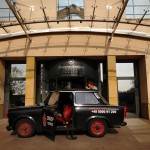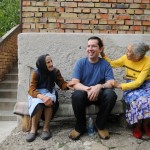
KRAKOW, Poland — A black Trabant pulled up in front of the Sheraton hotel and its driver helped passengers out of the boxy, cut-rate car that remains a symbol of communism two decades after its collapse.
The “communist tour” of Krakow was over. The 23-year-old guide, Eryk Grasela, had taken a Washington Times reporter and photographer to Nowa Huta, a suburb built in the 1950s as a “model communist city” and counterpoint to “bourgeois” old Krakow, long known as Poland’s cultural capital.
While other former communist countries have tried to erase many Cold War memories since they became democracies in 1989, Poland has embraced its past, made the best of it and moved on. Today, Poles seem more satisfied with their lives than many others in the region…


